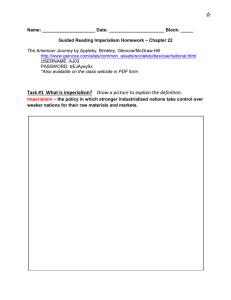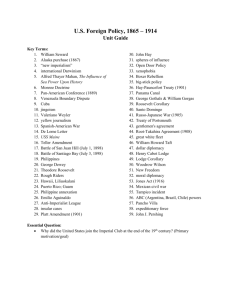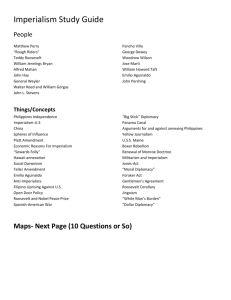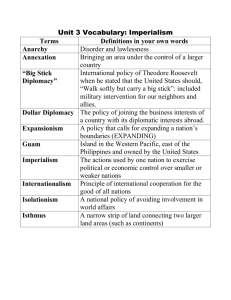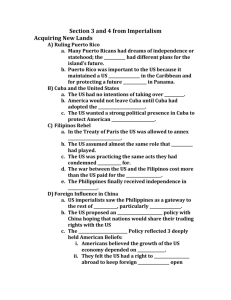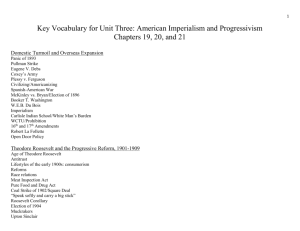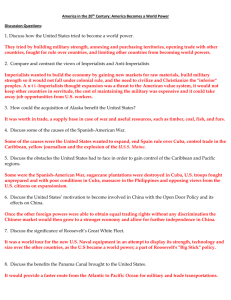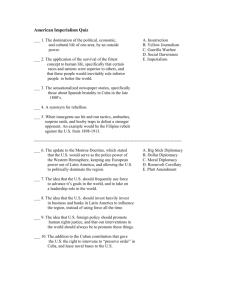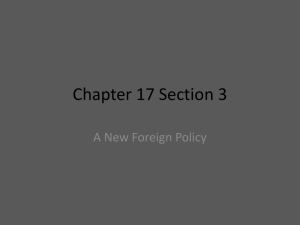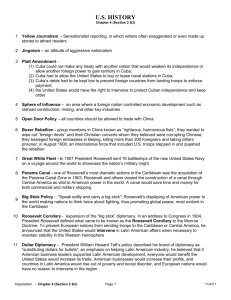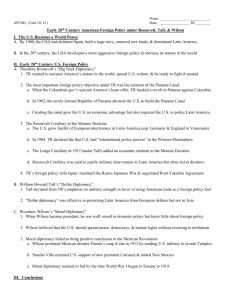chapter 2 outline - Northwest ISD Moodle
advertisement
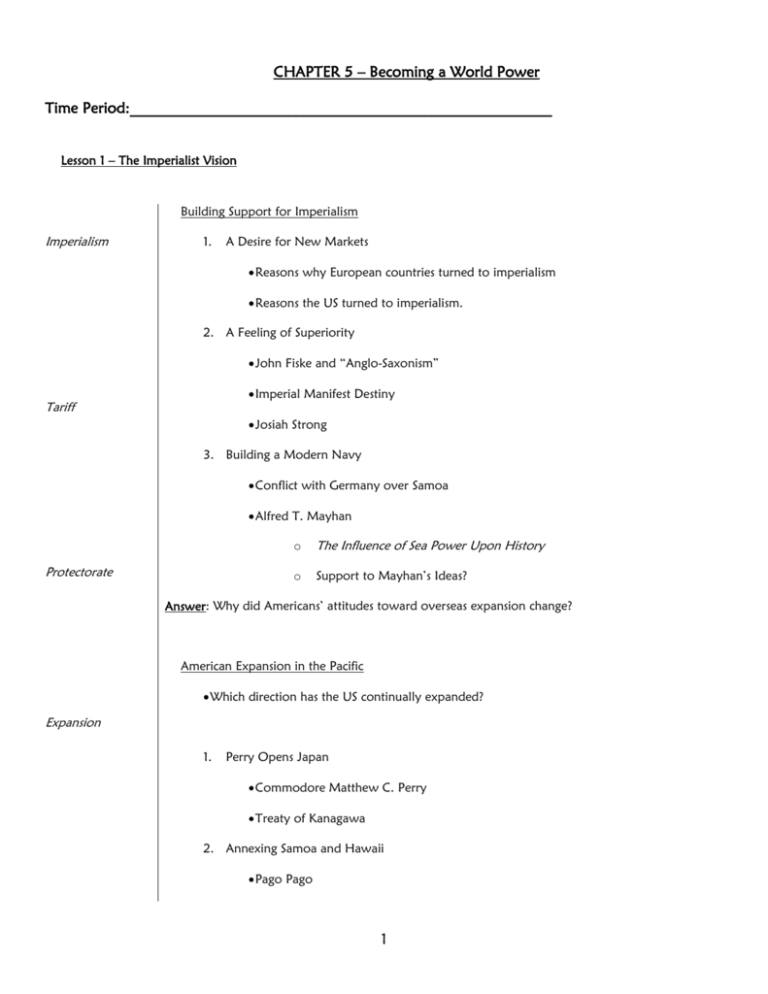
CHAPTER 5 – Becoming a World Power Time Period:________________________________________________________ Lesson 1 – The Imperialist Vision Building Support for Imperialism Imperialism 1. A Desire for New Markets Reasons why European countries turned to imperialism Reasons the US turned to imperialism. 2. A Feeling of Superiority John Fiske and “Anglo-Saxonism” Imperial Manifest Destiny Tariff Josiah Strong 3. Building a Modern Navy Conflict with Germany over Samoa Alfred T. Mayhan Protectorate o The Influence of Sea Power Upon History o Support to Mayhan’s Ideas? Answer: Why did Americans’ attitudes toward overseas expansion change? American Expansion in the Pacific Which direction has the US continually expanded? Expansion 1. Perry Opens Japan Commodore Matthew C. Perry Treaty of Kanagawa 2. Annexing Samoa and Hawaii Pago Pago 1 Hawaii and Sugarcane Sanford Dole Queen Liliuokalani President McKinley Answer: How did the search for new overseas markets push the US to become a world power? Yellow Journalism Intervene Lesson 2 – The Spanish American War The Coming of War What is Cuba’s relationship to Spain? Autonomy Jose Marti Reason’s for Cuban rebellion in 1895. Jingoism 1. America Supports Cuba American’s Support for the Intervening in Cuba? Reconcentration Camps 2. Calls for War McKinley and the Battleship Maine Answer: What events lead to the war with Spain in 1898? Volunteer A War on Two Fronts George Dewey 1. The Battle of Manila Bay Rough Riders Emilio Aguinaldo 2. American Forces in Cuba Theodore Roosevelt 9th and 10th Cavalry Kettle Hill and San Juan Hill Answer: On what two fronts was the Spanish-American War fought? 2 An American Empire 1. Territories the US Received from Spain The Debate Over Annexation Supposed benefits of taking the Philippines Other Support for Annexation People/Reasons Against Annexation Treaty of Paris (1898) 2. 1898: A Turning Point Reasons why the year 1898 was a turning point in US History 3. The Platt Amendment Sen. Orville Platt Stipulations of the Platt Amendment 4. Governing Puerto Rico Foraker Act (1900) 5. Rebellion in the Philippines Emilio Aguinaldo William Howard Taft 6. Economic Effects of the War Cuba Hawaii Puerto Rico Philippines United States Answer: What did the US need now to protect its overseas colonies? Answer: What did the US do to expand it territorial interests? 3 Sphere of Influence Open Door Policy Access Lesson 3 – New American Diplomacy American Diplomacy in Asia US Trade with China 1. The Open Door Policy China v. Japan (1894) “Leasholds” o Manchuria Russian Involvement Tension o Manchuria Secretary of State John Hay 2. The Boxer Rebellion Society of Righteous and Harmonious Fists (Boxers) Boxer Rebellion Second set of Open Door Notes o Hay: o US Retained: Answer: What was the importance of the Open Door policy to the United States? Roosevelt and Taft’s Diplomacy Theodore Roosevelt Beliefs as President 1. Balancing Power in East Asia Roosevelt Assistance between Russia and Japan 2. The Panama Canal Explain “speak softly and carry a big stick” Significance of Panama Canal Columbia v. Panama 3. Geography and the Canal How did Panama’s Geography Effect the Canal’s Construction? 4 4. The Roosevelt Corollary Dollar Diplomacy Define Roosevelt Corollary Goal of Roosevelt Corollary First Use of Roosevelt Corollary 5. Dollar Diplomacy Differences Between Roosevelt and Taft as President Answer: Why was it important for the US to influence Latin American nations? Guerrillas Moral Imperialism Woodrow Wilson’s Diplomacy in Mexico What did Wilson want to focus on during his presidency? Views on Imperialism? 1. The Mexican Revolution Porfirio Diaz Mexico Under Diaz Francisco Madero Victoriano Huerta 2. Wilson Sends Troops Into Mexico Pancho Villa General John J. Pershing Answer: Why did President Wilson’s “moral diplomacy” not accomplish its intended purpose? 5
